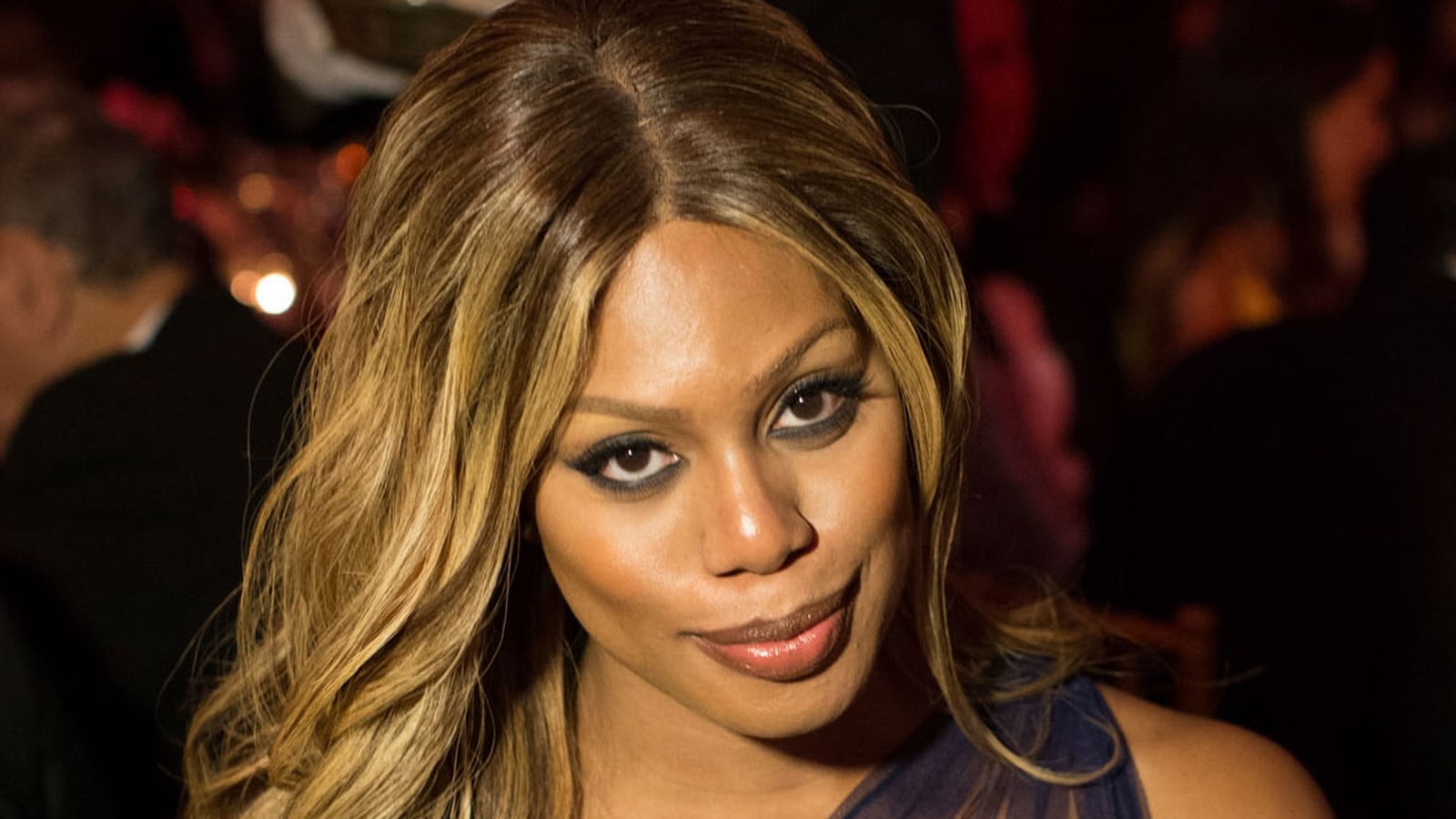Earlier today, Laverne Cox became the first out transgender actress to be nominated for a Primetime Emmy Award, for her role as Sophia on the Netflix hit Orange Is the New Black. This achievement followed her appearance on the cover of Time magazine, championing the nation’s “transgender tipping point.”

Cox, who got her start in TV with one-off parts on shows like Law & Order and appearing as a contestant on 2008’s I Want to Work for Diddy, has finally found herself with the fame, recognition, and respect she deserved all along.
Her story is, sadly, rare. Often, when trans actors and actresses do make their way to TV or movies, they’re cast in roles as sex workers, drug addicts, or as victims of violent crime. For most, that’s where their career plateaus, as even when a trans role is written into a mainstream Hollywood production—which, in itself, is rare—the parts are often awarded to cisgender (non-trans) actors.
Last year, Jared Leto portrayed drug addict and HIV patient Rayon in the movie Dallas Buyers Club to critical acclaim. Much like Hilary Swank before him, he too won an Oscar for his portrayal of a trans character.
To the chagrin of many trans individuals, Leto found himself somewhat an unofficial “ambassador of transness,” fumbling basic facts about trans people during his media tour in support of the film, which included his use of the slur “tranny,” and in his Golden Globes acceptance speech, spoke at length about waxing body hair. For many, watching their own stories told by someone who by all appearances lacked the knowledge to tell them was disheartening if not outright infuriating.

In December, Dallas Buyers Club director Jean-Marc Vallée was asked during an interview with the Canadian Broadcasting Corporation whether he had considered casting a trans woman in the role of Rayon. Vallée chuckled, responding, “Never,” and asking whether there were even any trans actors.
Jamie Clayton is one such actress. Clayton, who co-starred alongside Cox in the short-lived VH1 reality series Transform Me, was recently cast in Sense8, a project developed with the help of transgender co-creator of the Matrix Lana Wachowski and her brother Andy.
It’s not as though the concept of trans actors is entirely new, but rather, just simply an all-too-rare occurence. In 2007, trans actress Candis Cayne became the first out trans actress to have a recurring role on a primetime network TV show. Cayne, who played Carmelita on ABC’s Dirty, Sexy Money, appeared in 11 episodes during the show’s two-season run. She’s since popped up on CBS’ Elementary, playing the role of Mrs. Hudson in two episodes of the modernized retelling of the tales of Sherlock Holmes.
In the early 1980s, Caroline Cossey tried to follow up what was at the time a successful modeling career by taking on some acting work. After appearing as an uncredited featured extra in the 1981 James Bond movie For Your Eyes Only, Cossey was outed by the tabloid News of the World when they ran a headline proclaiming “Bond Girl Was Born a Boy.” As she later recounted, the experience not only destroyed her career, but nearly drove her to suicide.
What we’re seeing now is a world in which being transgender is not necessarily the career-killer it once was. These gains—of Laverne Cox scooping an Emmy nomination, Candis Cayne appearing on shows like Elementary and Dirty, Sexy Money, and Jamie Clayton finding herself cast in a recurring role in an upcoming TV show—may be small, but they are a true sign of progress.
Cox, Clayton, and Cayne truly are trailblazers, and one can hope that Cox’s Emmy nomination accomplishment will help convince Hollywood to take more chances on trans actors and actresses, and for directors like Vallée, to simply bring awareness to their own existence.
With every trans person who finds themselves reaching a level of celebrity, our culture will be able to better understand and accept trans individuals, and most importantly, simply to humanize them. As less than 10 percent of Americans say that they personally know a trans person, it’s easy for them to dehumanize and discard trans lives as being inauthentic and worthless.
In the short time since Cox began to receive recognition for her work, she’s taken on another project: educating individuals. With every speaking date, TV interview, and public appearance, she educates the uninformed, and she gives hope to other trans people.






